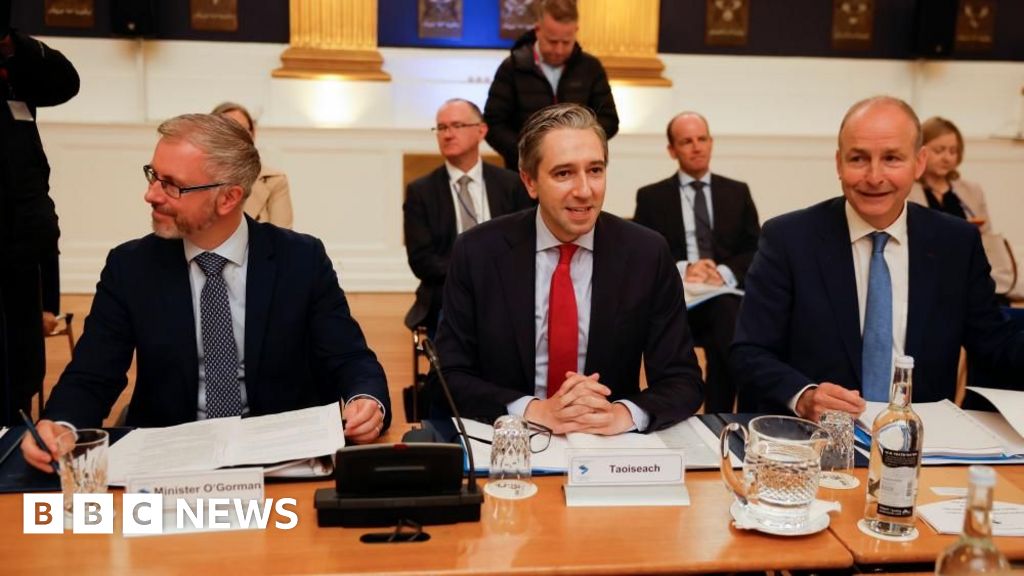Headline: Irish Government Confirms 2024 General Election Date Amid Financial Reforms
In a significant announcement for the Irish political landscape, leaders of the three ruling parties have agreed that a general election will take place in 2024. This decision comes amidst the imperative that elections must occur before the current term concludes in March 2025. Central to this commitment is the urgent passage of the Finance Bill, which introduces essential new taxation provisions aimed at enhancing the country’s economic framework.
Leaders Align on 2024 Election Timeline
During a media briefing in Dublin on Friday, Taoiseach Simon Harris of Fine Gael, Fianna Fáil leader Micheál Martin, and Green Party leader Roderic O’Gorman emphasized the necessity of finalizing key legislative measures before triggering the election. The committee stage for the Finance Bill is slated to begin on November 5, marking a crucial juncture in the government’s agenda.
O’Gorman had previously suggested November 29 as a potential election date, expressing a desire for "some degree of certainty" regarding the timeline. While no official date has been set yet, O’Gorman stated that an end-of-November election would allow sufficient time to pass remaining legislation critical to the nation’s fiscal strategy.
Legislative Priorities on the Horizon
The Finance Bill, currently under review, is designed to refine the Irish taxation system. Its successful passage is seen as crucial for boosting economic growth and addressing the pressing fiscal challenges that Ireland is facing. The bill encompasses significant provisions that are likely to influence technology sectors as they seek clarity in their operational frameworks amidst changing tax obligations.
Taoiseach Harris reiterated a careful approach, underscoring that the government wishes to complete its legislative work before engaging in electoral activities. Speaking to Irish broadcaster RTÉ News, he noted, "I want to do that at a time that is right for the country and I also want to do it at a time that makes sense in terms of finishing the work."
Context and Implications for Technology and Innovation
The upcoming election and the surrounding legislative activities hold substantial implications for the technology sector in Ireland, a country widely recognized as a European hub for tech innovation. With multinational companies establishing bases in Ireland, clear tax policies are crucial. These policies affect investment decisions, talent acquisition, and overall business confidence in the market.
As Ireland navigates through its economic landscape, the outcomes of the Finance Bill and its subsequent impact on tax structures may alter how tech companies operate within the country. With experts projecting a growth trajectory in this sector, the government’s financial policies will need to resonate with the needs of these businesses.
Proactive measures involving tax incentives for tech startups, research and development (R&D) credits, and supporting digital infrastructure will be pivotal as Ireland positions itself as a global leader in technology innovation.
Moving Forward: A Call for Engagement
As we await the official confirmation regarding the election date, the focus remains on the successful progression of the Finance Bill. This critical legislation will be watched closely by stakeholders across all sectors, especially in technology.
What are your thoughts on how the election timing might impact Ireland’s tech landscape? We invite you to share your insights or engage in discussions in the comments section below.
Moreover, to stay updated on the latest developments regarding the Finance Bill and its implications for the tech industry, consider following reputable sources like TechCrunch, The Verge, or Wired.
Keeping an eye on these legislative developments will provide a clearer picture of Ireland’s ambitions as it heads toward the 2024 general election.

![[중앙시평] Time is not on President Yoon’s side. [중앙시평] Time is not on President Yoon’s side.](https://img.joongang.co.kr/pubimg/share/ja-opengraph-img.png)